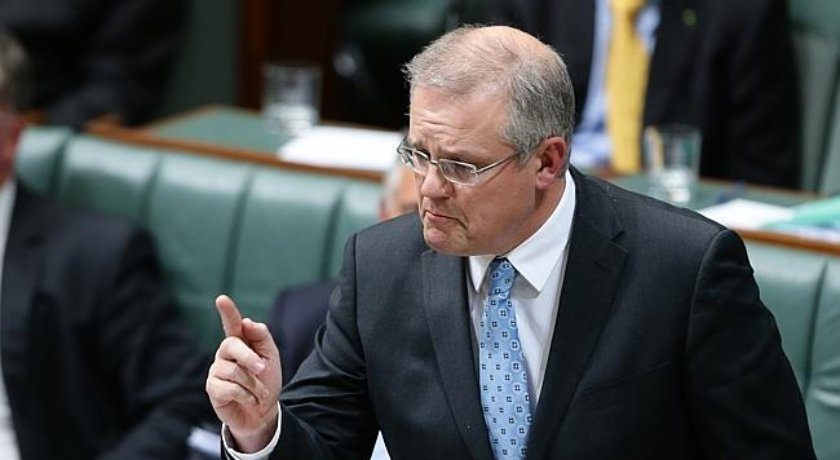Following yesterday’s announcement by Prime Minister Scott Morrison and Attorney-General Christian Porter about the establishment of a new Commonwealth Integrity Commission, lawyers, legal institutions and advocacy groups have had their say about its importance and mission.

The new federal body will lead Australia’s multi-agency, anti-corruption framework and operate under two divisions: the public sector integrity and law enforcement integrity divisions.
Legal reactions to the announcement were varied.
Law Council of Australia president Morry Bailes said, at first glance, the proposed CIC model and its functions was a “truly positive step”.
“This is a huge leap for Australian public accountability and transparency and for that the government needs to be applauded,” Mr Bailes said.
“The CIC would apply more stringent accountability measures to not only all government bodies, departments and staff, but also members of parliament and their staff.”
Transparency International Australia welcomed the government’s announcement, but called for stronger powers to fight corruption and improve transparency.
TIA CEO Serena Lillywhite said the new commission was “a critical step to rebuilding trust in the institutions of our democracy”.
“We are pleased the government has accepted the evidence that we need a national integrity agency, and we look forward to working with government and the Federal Parliament to advance this important reform,” she said.
“It is important that Australia adopts the best model for the new commission so that we don’t end up with a toothless tiger.”
TIA chair Fiona McLeod SC added: “We look forward to seeing more detail on how the coordination role will work and how the commission will be empowered and resourced to prevent corruption. It is important that any new offence of corruption under the Commonwealth Criminal Code be carefully designed.”
“The new commission should have a strong coordination role for all agencies and the power to hold public hearings for all matters where it is in the public interest to do so. We would like the new integrity regime to also include parliamentary standards for elected officials and their staff, and good mechanisms for the public and whistleblowers to provide information or make complaints,” she said.
Australian Lawyers for Human Rights supported the stance of TIA, in “recognising the need for a broad-based federal anti-corruption agency to ensure a comprehensive approach to corruption risks beyond the criminal investigation system, support stronger parliamentary integrity, and protect Australia’s democracy”.
“ALHR supports the long overdue establishment of a Commonwealth Integrity Commission. Under Articles 6 and 36 of the UN Convention Against Corruption (2004), governments, including Australia’s, have committed to ensuring they have ‘a body or bodies or persons specialised’ in combatting corruption, through prevention and enforcement,” ALHR president Kerry Weste said.
“Whereas the commission proposed by the Australian Labor Party would have a discretionary power to hold public hearings where this is in the public interest, it appears that the model announced today by the Morrison government will include no such discretion and will operate outside of public view, with the investigative body to make no public findings.”
The Law Council also note that it was looking forward to working with government, and parliament, “to ensure the CIC is an effective, ethical and transparent official watchdog”.
“Official corruption is a serious issue here and around the world, undermining democratic processes, jeopardising economic development and threatening stability. We will be examining the consultation paper thoroughly, as it is vital we strike a balance between transparency and ensuring the rights and reputations of individuals,” Mr Bailes said.
“What we must not have [are] unintended consequences, which could have devastating outcomes for those affected. People can have their lives destroyed if we don’t get it right. It is also essential the coercive powers exercised by the CIC through private chamber hearings are not abused and that there are rights enshrined to protect legal professional privilege.”
Marque Lawyers managing partner Michael Bradley took a slightly different view on Twitter, calling the proposed commission a “whitewash” in light of the fact it will have no hearings or reported findings.
“Scott's Federal Integrity Commission will not have public hearings, not make findings of corruption, not report on corruption. It will, however, redistribute a large amount of national income to lawyers,” Mr Bradley tweeted.
Lawyers Weekly recently published a special podcast episode with Shadow Attorney-General Mark Dreyfus QC, MP and Ms McLeod at the Australian Bar Association and NSW Bar Association national conference about the need for such a national integrity commission. You can listen to the episode here.

Jerome Doraisamy is the managing editor of professional services (including Lawyers Weekly, HR Leader, Accountants Daily, and Accounting Times). He is also the author of The Wellness Doctrines book series, an admitted solicitor in New South Wales, and a board director of the Minds Count Foundation.
You can email Jerome at: